The functioning of society depends largely on productive and cooperative efforts of its members. It is through work in a broad sense that people can achieve social and economic autonomy, prosper and become contributing members to society. For people to maximize this potential, opportunity and choice should be in place, and these depend largely on the functioning of labor markets. However, these markets are severely restricted and over-regulated, and this is an entrenched problem across the EU, especially as outdated labor laws curb new forms of enterprise and labor relationships that are evolving with the development of information technologies. In this respect Europe is losing much of its potential.
The Lithuanian Free Market Institute, in cooperation with five prominent think-tanks from across Central and Eastern Europe, is conducting cross-country research on the difficulty of hiring, the rigidity of working hours and the difficulty and costs of redundancy. As part of the project, LFMI publishes an annual Employment Flexibility Index for the EU and OECD countries.
Employment Flexibility Index
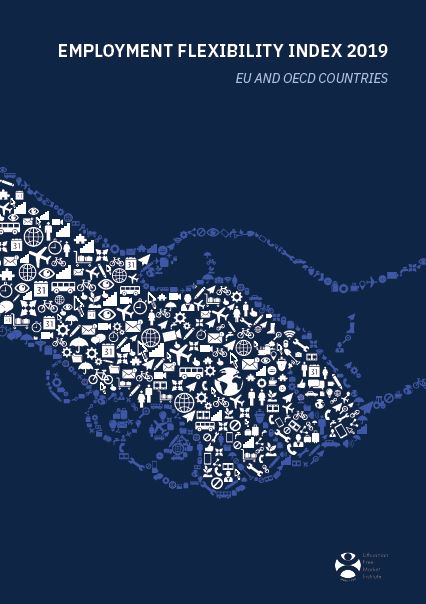
The Employment Flexibility Index 2019 for the member states of the European Union and the Organisation for Economic Co-operation and Development based on the World Bank’s Doing Business data on labour market regulation, covering a set of indicators on hiring, working hours, redundancy rules, and redundancy costs.
Previous editions: EFI 2018 (PDF)
“The index provides ample evidence that excessively rigid regulation of hiring, employment contracts, minimum wages, working hours or dismissals have adverse effects on employment dynamics, productivity and business growth. Our index is aimed at promoting a broader discussion on the importance of employment flexibility for growth and prosperity – building and sustaining a momentum for advancing much needed deregulation of labor markets.“
– Aneta Vainė, Vice-President, LFMI.
Cross-country research on the difficulty of hiring
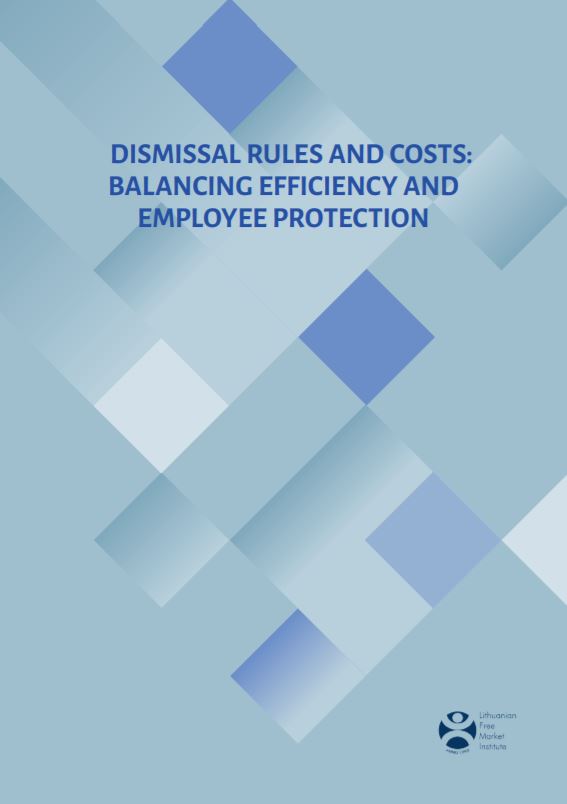
A research report from the Lithuanian Free Market institute ‘’Dismissal rules and costs: balancing efficiency and employee protection“ analyses dismissal rules and costs in selected CEE countries and looks into their economic implications. The research, which was conducted in cooperation with think-tanks from Bulgaria, the Czech Republic, Poland, Estonia and Slovakia, is based on comparative regulatory analysis and expert interviews.
“The study finds that applicable laws do not provide enough leeway for human capital allocation nor do they create incentives for increasing efficiency of employees, employers and the economy. Recommendations are put forward regarding ways to reach a proper balance between an efficient use of resources and adequate employee protection.”
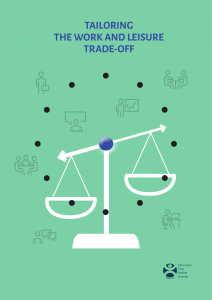
The analysis Tailoring the Work and Leisure Trade-Off provides cross-country analysis of the regulations of working hours across the CEE countries. EU sets minimum levels of regulation with respect to working hours. The research shows that the countries tend to comprehensively follow the set EU standards with regard to the maximum duration of work during the day, minimum periods of rest and some aspects of annual leave.
“The study shows that the effective functioning of the labor market, the ability of the employees and employers to adapt effectively to market changes, and to meet their interests is determined by the level of flexibility of working time regulation.“
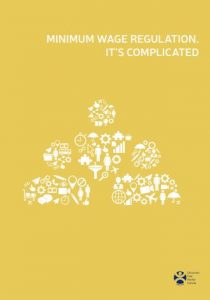
The study Minimum Wage Regulation. It’s Complicated describes the complexity of minimum wage regulation from a theoretical standpoint, provides and examines minimum wage statistics in Bulgaria, Denmark, Estonia, the Czech Republic, Lithuania, Poland, Slovakia, and Switzerland, and looks into the political processes behind minimum wage regulation. The results of the study show that a higher ratio between the minimum and average wages is linked to higher unemployment levels and other unintended consequences.
“In most EU countries the mandatory minimum wage
accounts for more than 40 percent of the average wage and grows faster than the average wage and productivity. […] a one percentage point increase in the minimum wage to average wage ratio coincides with a 0.16 percentage point increase in the unemployment level.”
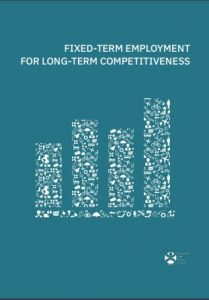
The analysis Fixed-Term Employment for Long-Term Competitiveness provides cross country legislative and policy analysis on the flexibility of hiring under atypical contracts with a particular emphasis on employment under agreements of predetermined duration in Bulgaria, the Czech Republic, Estonia, Lithuania, Poland, Slovakia, Denmark, and Switzerland. The study argues that atypical employment contracts (e.g. zero-hour, job sharing, verbal hiring) respond to the needs of both employers and workers and should not be over-regulated.
“In countries such as Lithuania and Slovakia that have a high level of structural unemployment (over 10 percent), it is advisable to ensure a higher level of hiring flexibility and to loosen applicable labor regulations.“
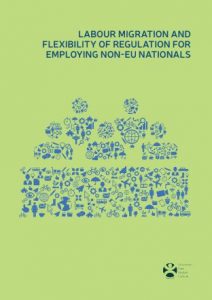
The paper Labour Migration and Flexibility of Regulation for Employing Non-EU Nationals provides cross-country legislative and policy analysis on the flexibility of hiring of non-EU nationals in Lithuania, Estonia, Poland, Slovakia, Bulgaria, the Czech Republic, Denmark and Switzerland. The study argues that contrary to a popular belief, economic migrants do not displace local labour force, but help to reduce imbalances in local economies by filling in the demand for workers that a local economy cannot provide.
“The regulation of the admission and hiring of non-EU nationals is too burdensome and economically uneffective and calls for the optimization of current processes.”
The Employment Flexibility Index and cross-country analyses are produced in cooperation with the Institute of Market Economics (Bulgaria), the Center for Economic and Market Analyses (the Czech Republic), the Civil Development Forum (Poland), the Institute of Economic and Social Studies (Slovakia), and the Estonian Business School (Estonia).
The project is generously supported by the Rising Tide Foundation.